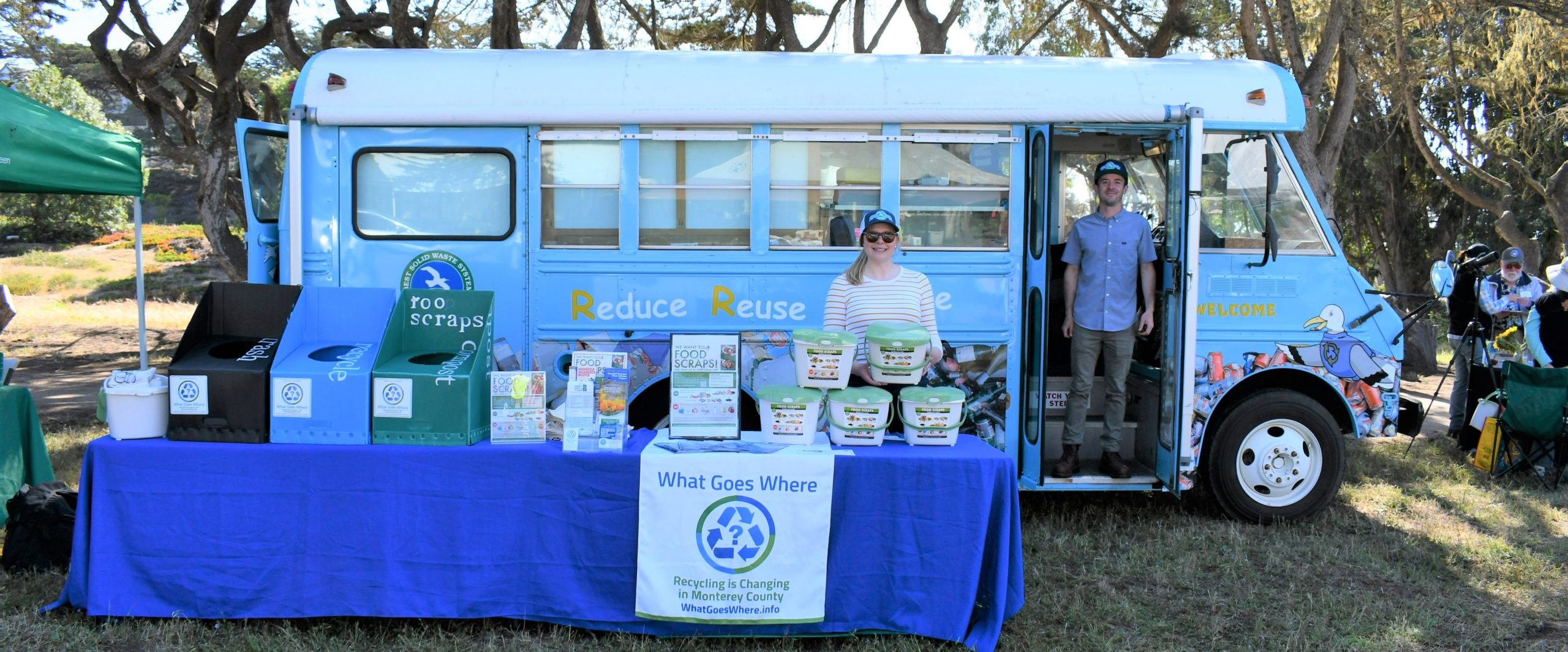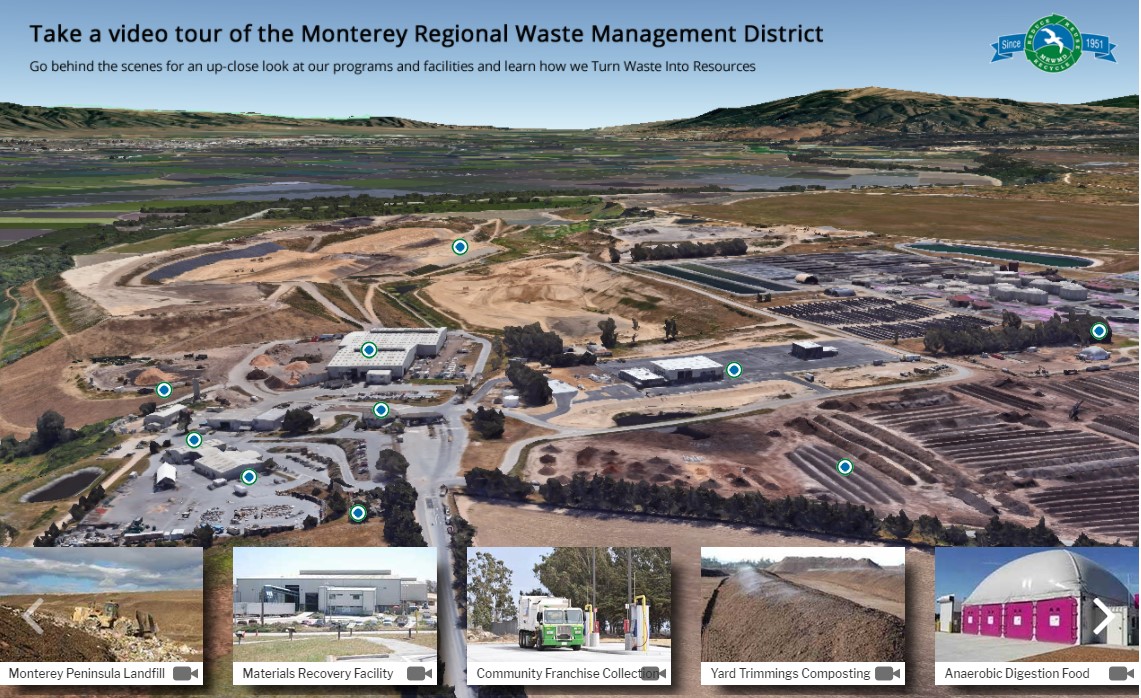EDUCATION
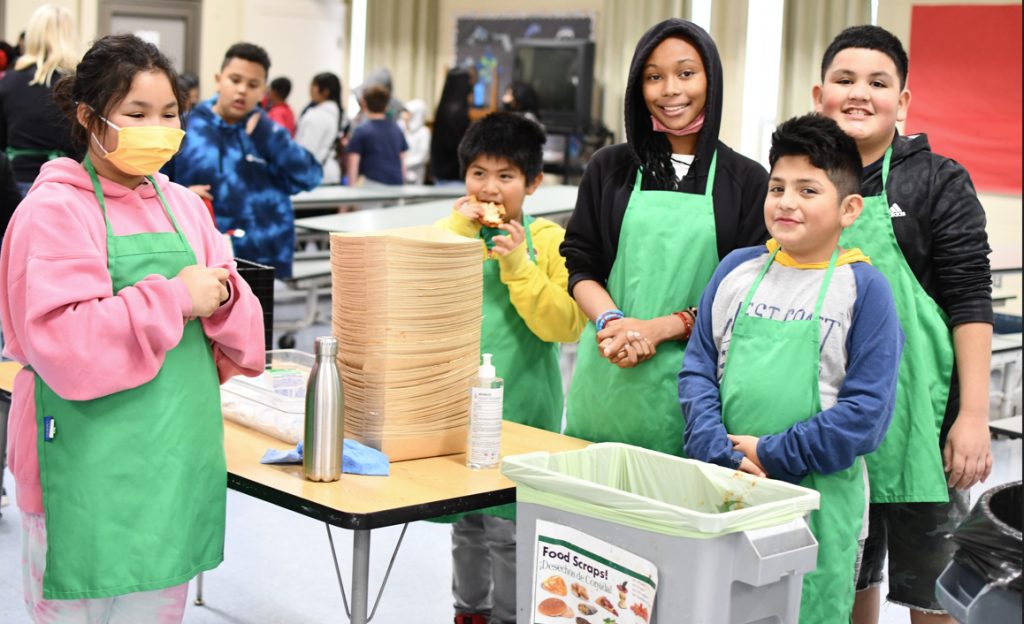
ReGen Monterey supports school and district-wide waste reduction and recycling efforts to assist in greater diversion of these materials. We are currently focused on ensuring that schools comply with California’s SB 1383 that requires food waste diversion, and educating students about separating food scraps from the garbage.
Working with school and/or district staff, franchise haulers and students, ReGen Monterey can provide or assist with the coordination of:
- Technical assistance/ waste audits (coordinated with the franchise hauler)
- Education (staff and student volunteer education and training)
- Assistance with coordination of program implementation
- Infrastructure (when available recycle containers, signage, compost bin donation, etc.)
- Compliance with food scrap sorting and collection
- Special event garbage, recycling and organics collection containers
Contact Francisco Guzman, Communications Specialist, for more information: FGuzman@ReGenMonterey.org 831-264-6917.
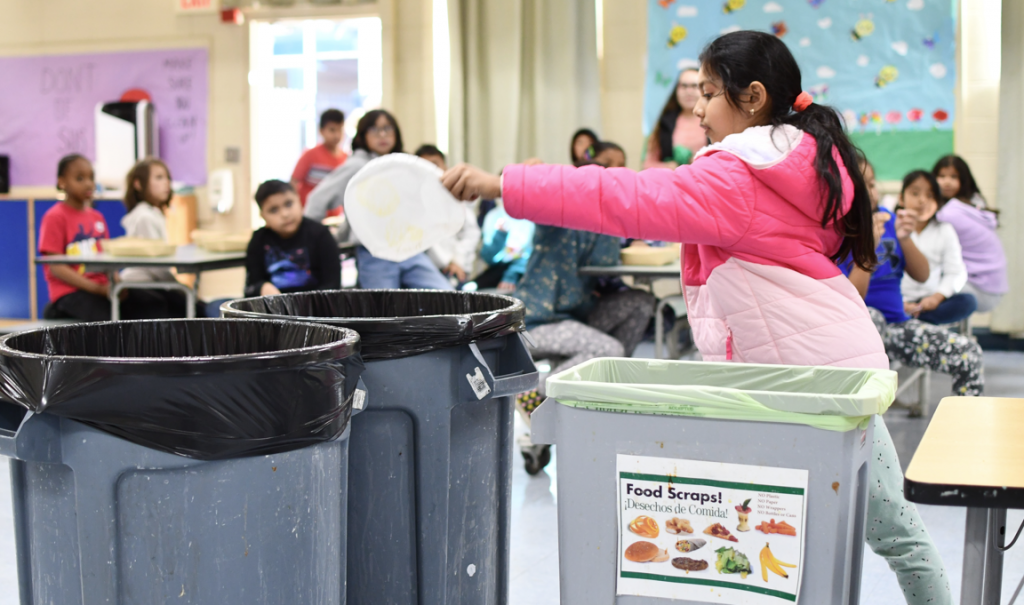
ReGen Monterey and the Visual and Public Art (VPA) Program at California State University Monterey Bay (CSUMB) have teamed up to create an Artist in Residence Program. Beginning January 2016, the collaborative partnership will allow VPA students to salvage for discarded materials and upcycle them into art.
The partnership will draw upon the expertise of CSUMB VPA faculty, who will mentor the student participants. ReGen Monterey and Last Chance Mercantile will provide access for material salvaging. VPA artists will work and create in the yard at Last Chance Mercantile, providing the general public the opportunity to watch and engage with the artists.
Welcome to Unwrapping Plastics! This series, developed by MRWMD intern Andrew Jarvis in June 2020, is comprised of a set of blog posts and video lectures intended to provide an overview of the nature of the global plastics crisis. The end goal is for readers to leave with a fundamental understanding of the unique geography of the plastics crisis, including the linkage between plastic production and resource management; environmental justice as it relates to plastics; and critiques of the main approaches to plastic pollution management. It is hoped that the series might serve as a community resource on plastics and plastic pollution.
As the Public Education and Outreach Intern at MRWMD, I have had the opportunity to engage with recycling and waste reduction projects, two of my passions. This project expands upon my undergraduate research, which focused on the geography of waste, public engagement with plastic pollution, and international environmental management. I am excited to make this content available to the public. While at UCLA, I studied abroad in Bangkok and Oslo – very different cities with different relationships with waste, but united by the common problem of plastic pollution.
We live in an exciting time. The state of the environment, and people’s relationship to the natural world, is dire. But there is immense opportunity for change. I believe that change will come soon. Plastic pollution is a rapidly developing issue; media coverage of polluted environments together with surges in production can be disheartening at best and overwhelming at worst. But people aren’t powerless. People have the power to make change and expand that change through social networks. Every action, every decision, every post, matters. MRWMD wants to be a resource and recognizes that plastic pollution is a crisis at the global scale and that there is a need for waste reduction at both the producer and consumer levels.
*MRWMD Service Area Includes the following jurisdictions:
Moss Landing, Castroville, Marina, Seaside, Del Rey Oaks, Sand City, Monterey, Monterey-Salinas Highway area, Pacific Grove, Pebble Beach, Carmel, Unincorporated Carmel, Carmel Valley, Carmel Highlands, and Big Sur
Staff Contacts
Office Hours:
Monday – Friday
9 a.m. – 4 p.m.

